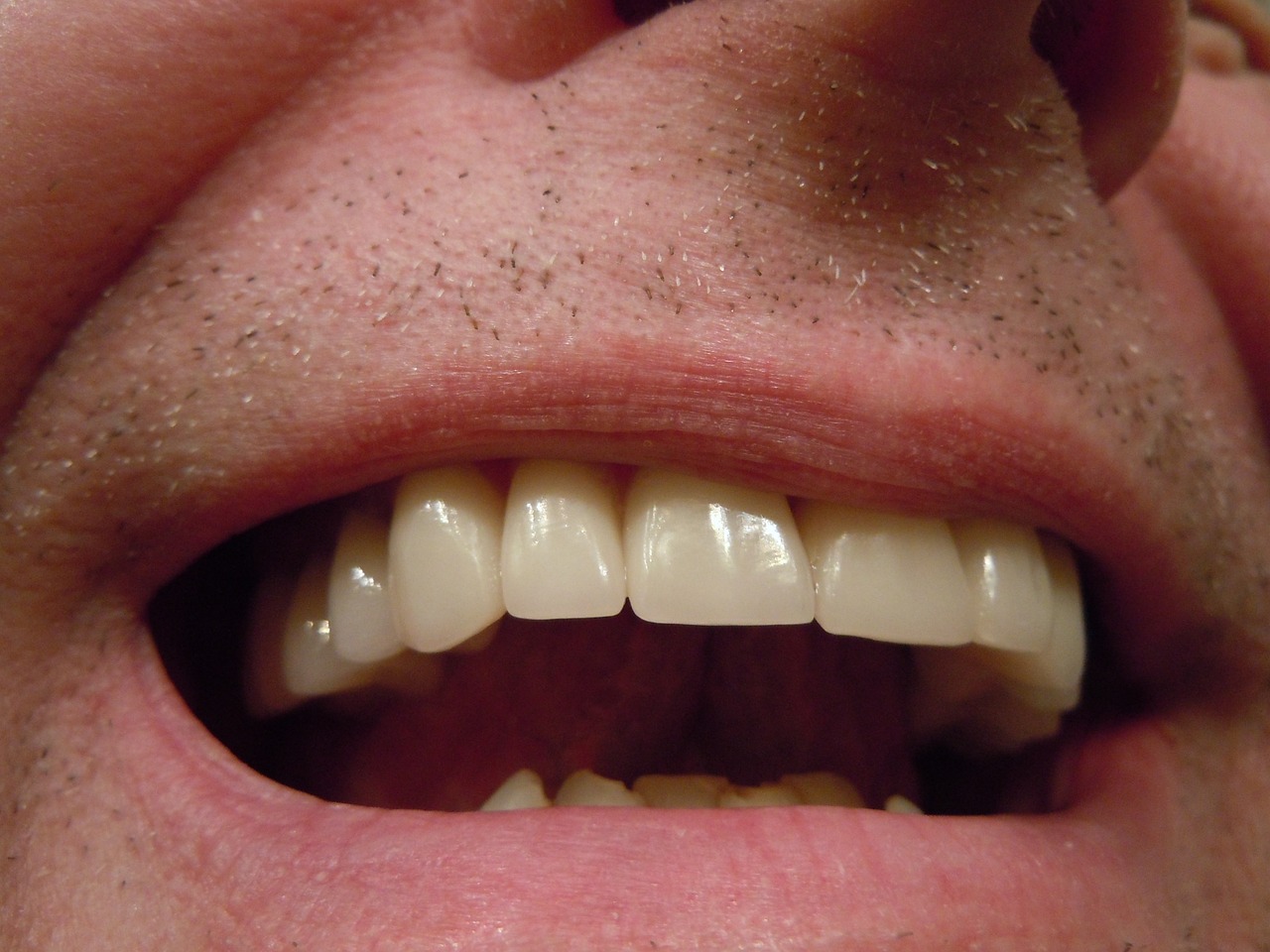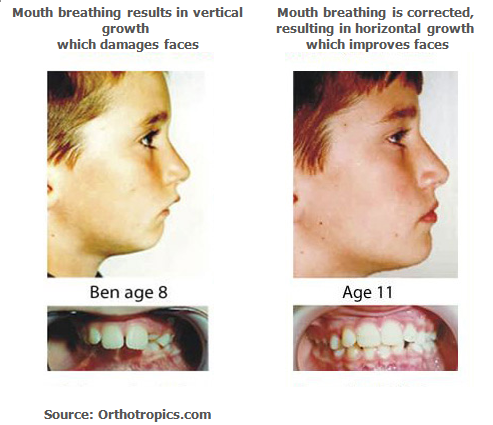
Breathing Retraining Courses
Sleep Apnoea
Asthma ~ Snoring
Nasal Problems ~ Panic
Mouth Breathing
Understand and Treat the CAUSE not the symptoms
Mouth Breathing and Dental Problems
Mouth Breathing
It is estimated that in Australia today approx 80% of school age children are already mouth breathers. Most parents do not even notice their kids are mouth breathing and that their lips are apart.
If your lips are not together (closed lip posture) your tongue will be in the incorrect position and will push your teeth and the jaws out of shape. see Dental problems below
This mouth breathing really effects the child’s health. More infections because one of the main functions of the nose is to filter impurities, mouth breathers get runny congested noses, more respiratory infections, colds and viruses, tonsils and adenoids become enlarged and infected. Approximately one in twelve develop asthma and their sleep quality reduces which effect their school work , their mood, and sports performance. Also the face shape can change to a less attractive longer appearance.
Mouth breathing is at the root cause of …
- crooked teeth
- blocked & runny noses
- ASTHMA and
- increase in allergic response
- poor sleep
- snoring
- fatigue
- reduced sporting performance
- more colds and flu and longer to recover
- enlarged and infected tonsils and adenoids
Breathing Retraining will turn kids and adults from MOUTH BREATHERS into NASAL BREATHERS – day or night, awake or asleep. Breathing Retraining will correct this even if the person has a blocked nose.
In almost all cases surgery can be avoided and should not be considered without looking at the person’s breathing first.

Dental Problems
Chronic mouth breathing has long been seen as a concern by the dental profession. Dentistry will be so much harder, slower, will likely relapse and will be more expensive for mouth breathers.
With nasal breathing, the tongue rests on the roof of the mouth. The tongue exerts pressure ensuring wide arches and straight teeth.
With mouth breathing the tongue drops to the bottom of the mouth and exerts force on the teeth causing, over time, a narrow upper jaw with crowded and crooked teeth.

BEWARE – ENT or Allergy Specialists, Sleep Specialists or even some Dentists often recommend surgery – to remove tonsils, adenoids, straighten the deviated septum or use a “course” of allergy injections, nasal sprays.
Almost all mainstream medical treatments do not understand that it is the (minute) volume of breathing that actually causes the nose congestion, the tonsils and adenoids are supposed to catch the impurities if they are not filtered by nasal breathing.
BEFORE you subject your child to surgery or years of very expensive dentistry … find out how, in 3-4 days, working with parents, we can convert your child to nasal breathing, day and night 24/7, naturally. Even if you go down the path of more invasive surgery, your child’s breathing will still need to be corrected.
Already had a nose operation?
Already had tonsils out?
While many people may see some reduction in symptoms, however, the breathing volume problem still exists, and problems will return .. soon noses block again, snoring returns, and usually sleep apnoea. The mouth still falls open at night. The teeth are still affected. The root cause has not been addressed.
So many adult clients on Breathing Retraining courses with sleep apnoea confirm they were often mouth breathing in childhood. Many have had teeth extracted in their teens. Early intervention for children with the establishment of good breathing habits can help avoid more invasive dental treatments such as teeth extraction and braces in their teens and later years.
So How Does Breathing Affect My Teeth?
Why Nasal Breathing help the teeth …
- To put your tongue in the roof of your mouth.
- To develop your jaws properly.
- To make room for your teeth.
Breathe through your nose…..
- To filter the air (only 40 microns get through to your blood)
- To humidify and warm the air. (less mucus & sinus problems)
- To regulate the volume (the key to Oxygen absorption)
PH: 0413 482 765 | Email: info@buteykohealth.com.au | 273 Riding Rd, Balmoral Qld 4171 | Find us on Facebook: @brianfirthbuteykohealth
PH: 0413 482 765
Email: info@buteykohealth.com.au
273 Riding Rd, Balmoral Qld 4171
Find us on Facebook: @brianfirthbuteykohealth
